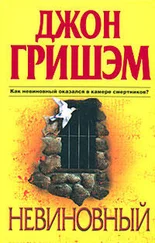Later, in Coach Britt’s office, Samuel sat and they talked about the team from South Sudan and caught up with all the gossip. Murray joined them, and when Lonnie closed his door, Ecko stopped smiling. He said, “Look, Samuel, I have good news and bad.”
Samuel closed his eyes as his shoulders slumped.
Ecko said, “Two days ago, I received a call from a French lady, a nurse working for a nonprofit called Doctors Without Borders. She’s in Uganda at the Rhino Camp Refugee Settlement.”
“I know where it is, Coach. I have it on a map. There are over one hundred thousand of my people living there.”
“Including your mother. Yesterday I spoke to Beatrice. She is safe and doing okay.”
Samuel placed his palms over his eyes and fought back tears. “Thank God, thank God,” he whispered. They watched him for a moment, then Ecko said, “I told her where you are, what you’re doing, and so on. She was excited to know that you’re here, in college.”
“You spoke to my mother?”
“I did, and she’ll call back in the morning, around seven. She’s using a nurse’s phone. They will call your cell.”
Samuel breathed deeply and wiped his cheeks. A long minute passed before he said, “Okay, and the bad news.”
“Your brothers are with her and everyone appears to be healthy. However, Angelina didn’t make it.”
“Didn’t make it? What happened to her?”
“She was taken away by rebel soldiers when they burned the village.”
“No!” Samuel bent over, rested his elbows on his knees, and covered his face again. The emotions came in waves as his body shook and he kept whispering, “No, no, no.”
Murray, Ecko, and Lonnie glanced at each other then studied the floor as the long minutes passed. There was nothing to say, nothing to do but sit and be there for support. They could not begin to imagine the horror of what Samuel and his family were going through. In a file, Ecko had some paperwork for each of his players and he knew that Angelina’s sixteenth birthday had been September 2.
Whether she lived to see it could not be known. Ecko had doubts, as did Samuel. The killing was so casual, the atrocities so unspeakable, it was difficult to believe that the enemy would have much use for the girl after a while.
“I should’ve been there,” he finally whispered.
Coach Britt stepped out of his office to make sure the locker room was empty. When he returned, he said, “Let’s go to my house. Agnes is cooking dinner and my kids would like to see you, Samuel.”
His phone rang with an international call at 7:04 the following morning. Samuel was staring at it, waiting. He’d been awake for an hour, though he had slept little. Murray was dressed and sitting on his bed, waiting too.
A pleasant lady with a slight accent identified herself as Christine, and when Samuel said hello she handed the phone to Beatrice Sooleymon.
When Samuel said, “Mother, is it really you?” Murray eased by him, patted his shoulder, and left their dorm room.
They talked for twenty minutes. As difficult as it was, Samuel wanted to know what happened that night in Lotta, and Beatrice, through many tears, told the whole story. She wasn’t sure what had happened to Ayak but she feared the worst. Samuel confirmed that his body had been identified by government troops. Beatrice took it as well as could have been expected. She’d been almost certain of it anyway. She described how they took Angelina, then their flight away from the village, the days and days of travel with no food and water. But they were in a better place now, safe and surrounded by good people who wanted to help each other. She wanted to know all about his new college and life in America, and, well, everything he was doing. They cried a lot but also managed a laugh or two. Samuel wanted to go home, to reunite with his family, to somehow rescue them, but it was not possible. He asked what he could send them, but Beatrice said she wasn’t sure. Maybe later. Maybe if and when they were given a more permanent residence he could send packages.
From his research, Samuel knew there were people who had fled his country with nothing and had been living in the settlements for many years. Most lived in harsh, unsanitary conditions with barely enough food to survive. Violence was rare, but disease was common and spread by raw sewage, dirty water, and contaminated food. Efforts to provide education were hamstrung by a lack of facilities and teachers. Dozens of aid groups from around the world labored heroically in the camps and settlements.
The more Samuel had read, the more discouraged he became. They had lost their home, many of their friends and family, and their way of life.
As he talked to his mother, he could almost feel the strain of hopelessness in her voice. In two months her world had been rocked and violated, and there was no going back. He realized that he was her bright spot, and it would be his challenge to lift her spirits. When it was time to go, he chatted with the French woman, Christine, and was told he could call her number once a week. They agreed that every Wednesday at 7 a.m. eastern time would be the chosen hour. Beatrice and her boys would appear outside the tent hospital and Samuel would call from America. Christine warned that the cellular service was not always reliable.
He stuck his phone in his pocket and left the dorm. He had no desire to talk to Murray or anyone else. He needed time alone to think about Angelina and grieve. He took a long walk around the campus and sat for an hour on a park bench as the university came to life. Classes were not important. Basketball could wait. He would call T. Ray and get excused from work.
His day would belong to Angelina. He thanked God for the safety of his mother and brothers, and vowed to one day extricate them from the camp and bring them to America.
For the moment, though, he just wanted to be alone. He tried not to think about her final hours, but chose instead to dwell on childhood memories of his little sister picking fruit in their rear yard, eating too many berries and getting sick, and tagging along behind her big brother to the basketball courts.
He should have been there for her.
Ecko and Lonnie Britt were shown to a corner table in an elegant downtown restaurant. Once seated, Ecko picked up his sparkling white and perfectly ironed cloth napkin and said, “Wow. You did say you’re treating, right?”
“I got it. No problem. They’re afraid I might leave so they jacked up my expense account.”
“And salary?”
“They want to talk but I’m not so sure.”
“Is that why we’re having lunch in a swanky place? The privacy?”
“Yes. We probably won’t see anyone from Central in here for lunch.”
A hostess handed them menus and asked about drinks. They were fine with water.
“All right, let’s hear it,” Ecko said.
“You know it, Ecko. I’m forty-one and I’ve been here for four years. Won almost seventy percent of my games and I don’t want to get stuck here. I want to move up. The question is: Who’ll be in the market come next April?”
“Who’s on the hot seat?”
“Yep. Who’s on the hot seat? I figure Dulaney at Iowa is toast. Lost twenty games the last two years.”
“I can’t believe they kept him.” Ecko was scanning the menu and shaking his head. “Thirty bucks for smoked salmon?”
“It’s worth it. I’m buying, okay?”
“Forgive me, Lonnie. I’ll always be an immigrant.”
“Yes, and you instinctively order the cheapest thing on the menu. Relax. This is on Central.”
“Dulaney’s buy-out was too big so they kept him for one more year. Should be a disaster. They’ll fire the AD too. Talbott at Miami is retiring.”
Lonnie smiled at the news and asked, “Has he announced it?”
Читать дальше












